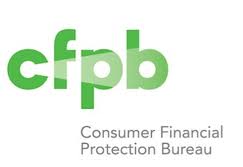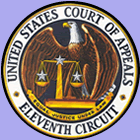While there are many reported cases discussing attorney fee awards to successful plaintiffs under the Fair Debt Collection Practices Act, fee awards for defendants who had to endure bad faith complaints are few and far between. Recently, one of these rare opinions surfaced in the Eastern District of Missouri in Nguyen v. Capital One Bank, (USA), N.A., 2014 U.S. Dist. LEXIS 46716 (E.D. Mo. Apr. 4, 2014). The underlying putative class action complaint was filed in state court and removed by the defendants who then filed a motion to dismiss. The District Court granted the unopposed motion to dismiss and…
Posts published in April 2014
The House Financial Services Committee will question representatives of federal financial regulatory agencies during a hearing tomorrow entitled, “Who’s In Your Wallet: Examining How Washington Red Tape Impairs Economic Freedom.” According to the committee, “This hearing will examine the economic consequences of recent rulemaking, supervisory, and enforcement actions of the Consumer Financial Protection Bureau, the Federal Deposit Insurance Corporation, the Federal Reserve Board, the National Credit Union Administration and the Office of the Comptroller of the Currency on consumers, community financial institutions, the U.S. economy, and our domestic job-creating businesses.” During the hearing, the committee will investigate how the agencies evaluate…
Title loan lenders are under fire from New York Attorney General Eric Schneiderman who announced this week that he reached “agreements” with 10 repossession agents to stop accepting their repossession assignments. Title loan companies do not establish a physical presence in New York to avoid its 16 percent maximum loan interest rate for unlicensed lenders, according to a press release from Schneiderman’s office. According to the press release, these out-of-state title loan lenders are charging interest rates ranging from 100 percent to more than 700 percent. A title loan, which is a type of payday loan, can often worsen a consumer’s financial problems because many are unable to pay off…
The Consumer Financial Protection Bureau has issued its Consumer Response Annual Report which includes complaints related to debt collection. As it did in its Annual Report on Debt Collection issued on March 20, the CFPB again represents having received “approximately 31,100 debt collection complaints” in 2013. This number, however, is far greater than the number of debt collection complaints appearing in its public database. So where are the missing complaints? Last week Eric Rosenkoetter of the National Association of Retail Collection Attorneys provided some of his thoughts on where the missing CFPB complaints may have gone. Listen to Eric, David Reid of DBA…






